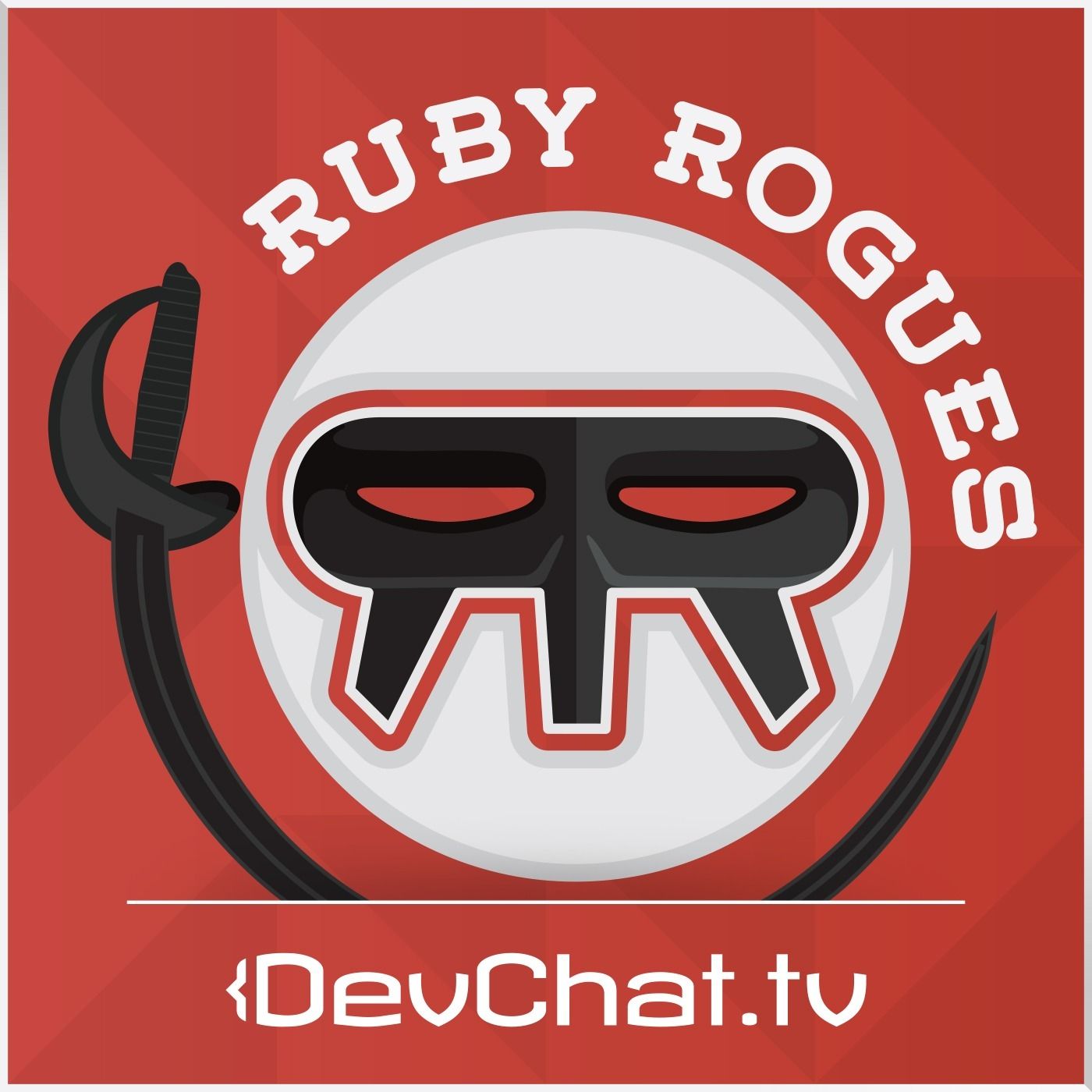
Ruby Rogues
RR 430: Opal with Elia Schito
Tue, 17 Sep 2019 10:00:00 +0000
From Default Workspace • No contributors
Episode Summary Today’s guest Elia Schito has been a Ruby developer for 12+ years and works for Nebulab. During his career he looked for Ruby to JavaScript translators and found Opal. The panel discusses where Opal belongs within an app and when the compilation into JavaScript occurs. The main reason a person would want to use Opal is to avoid writing in JavaScript. Elia talks about the benefits of using Opal. One is that productivity is better in a language like Ruby. Also, if you’re working on a project that needs to get done quickly, it makes sense to use Opal so that your speed is not hindered. Elia talks about testing Opal with things like WebPacker and Hyperstack, and explains what Hyperstack is. Opal recently released a newer, bigger version, and Elia talks about the features of the new release. He details what kind of JavaScript it produces and how to hook it into your CICD, how to run it locally, and overall how to use the compiler. He talks about how to debug in Opal. He notes that during the development cycle in Opal, you can refresh your page and it will compile the Ruby code into JS, so if there are any errors you will see it immediately. Opal is compatible with other tools to check your code. In the future, Elia wants to increase the coverage of the core and standard library, and believes that Opal is a great way to increase your skills in Ruby and JavaScript. He talks about the general reception of Opal among users. Opal is a perfect fit for smaller teams or older fullstack developers, especially if you don’t have a frontend team Elia notes that Opal, much like anything else, is a matter of preference, and relates it to the past reliance on CoffeeScript. For developers who refuse to write in JavaScript, Opal is an excellent option. He talks about the speed of compiling ruby to JavaScript in Opal and how it supports keeping current with Rails versions and other frameworks. The panel asks if the Opal community made any inroads with DHH for making it part of the Rails stack proper and whether Opal wants to be integrated with Rails. Elia talks about some of Opal’s contributions to the Ruby Community. Elia talks about what generally happens if you choose to use Opal in a project. Opal is small, but you will have to make some tradeoffs. You have to call your standard library from Opal, but there are many ways to overcome that. The show concludes with Elia calling on the community to help him resurrect the Volt framework. Panelists Andrew Mason David Kimura Nate Hopkins With special guest: Elia Schito Sponsors Sentry use the code “devchat” for 2 months free on Sentry’s small plan Cloud 66 - Pain Free Rails Deployments Try Cloud 66 Rails for FREE & get $66 free credits with promo code RubyRogues My Ruby Story Links Opal WebPackerStimulusHyperstackCapybaraCoffeeScriptDeviseClearwaterReactiveVolt frameworkNebulab Follow DevChatTV on Facebook and Twitter Picks David Kimura: AWS Organization Consolidated BillingPingverse Nate Hopkins: Benjamin Moore paint Andrew Mason: Github Actions (beta) Elia Schito: Follow Elia on his websiteExplaining PostmodernismTexmateSpecial Guest: Elia Schito. Advertising Inquiries: https://redcircle.com/brandsPrivacy & Opt-Out: https://redcircle.com/privacyBecome a supporter of this podcast: https://www.spreaker.com/podcast/ruby-rogues--6102073/support.
No persons identified in this episode.
No transcription available yet
Help us prioritize this episode for transcription by upvoting it.
Popular episodes get transcribed faster